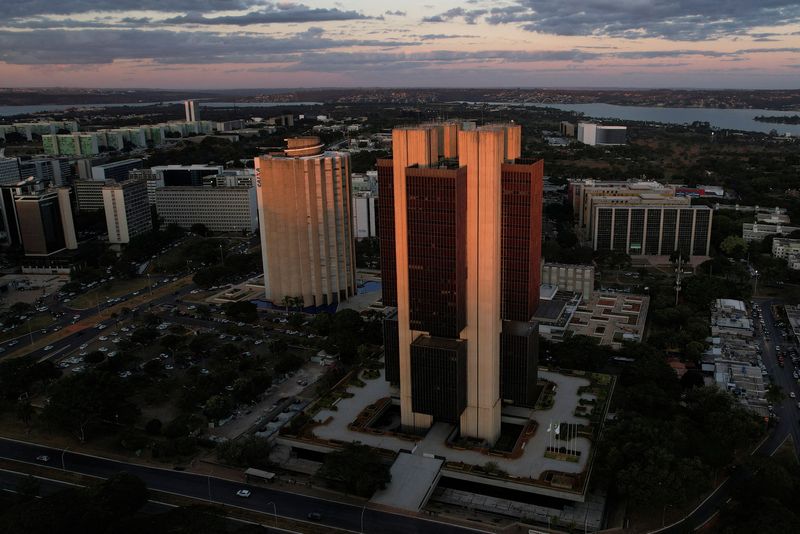By Gabriel Burin
BUENOS AIRES (Reuters) - Brazil's economy will continue growing at a steady pace over the medium term thanks to a continuous rise in public spending that is set to keep fiscal deficits uncomfortably high, a Reuters poll showed.
This would add to an already large budget gap that last month triggered a confidence crisis and a sell-off in Brazilian assets. Tensions subsided after President Luiz Inacio Lula da Silva signalled more fiscal restraint.
However, analysts remain cautious about the direction of public finances. So far, the impact of the market rout on the real economy has been contained to a small increase in inflation expectations due to a weaker currency.
Gross domestic product (GDP) is set to expand 2.0% both in 2024 and next year, according to median estimates from 45 economists polled over July 8-18. That compares to forecasts of 1.8% and 2.0%, respectively, in an April survey.
"Despite the pause in the central bank's easing cycle, a hot labor market and fiscal stimulus measures will help keep GDP growth close to 2.0%," said Marcela Kawauti, chief economist at Lifetime Investimentos.
"On the other hand, strong demand should maintain consumer prices under pressure, which, in addition to the effect of the depreciation of the local currency, will probably keep annual inflation around 4.0%."
Consensus views for inflation in the poll rose to 4.0% in 2024 and 3.6% in 2025 from 3.9% and 3.5% in April's poll. It is expected to average 4.3% this quarter before slowing next year.
Asked what was more likely for inflation in the rest of 2024, a slim majority of six of 11 respondents said it could run higher than projected. The other five said lower.
A rate of 4.0% would be a full percentage point above the mid-value of the central bank's target for 2024, of 3.0% +/- 1.5 percentage points. A pickup in inflation expectations this year pushed the bank to suspend a series of interest rate cuts in June.
The move, defended by Banco Central do Brasil's orthodox governor Roberto Campos Neto, prompted a strong public rebuke from Lula, taking an old spat to a level that further spooked investors during the recent market turmoil.
The latest median growth estimates in the poll were below the government's projections of 2.5% for this year and 2.6% in 2025, including positive contributions of aid programs for different sectors.
A budget freeze announced last week was not enough to dispel analyst worries.
"We expect a very gradual fiscal correction but anticipate fiscal deficits will remain large," said Elijah Oliveros-Rosen, chief economist - EM at S&P Global Ratings.
"A lack of visibility on government efforts to contain non-discretionary spending leads us to believe the general government primary result will remain slightly negative over 2024-2027, at an average of -0.7% of GDP."

In a report, Citi analysts said the freeze meant a reduction in the expected 2024 deficit to -0.5% from -0.7%, still "insufficient to deliver the year-end primary fiscal result within the target band (-0.25% of GDP to 0.25% of GDP)."
(Other stories from the Reuters global economic poll)